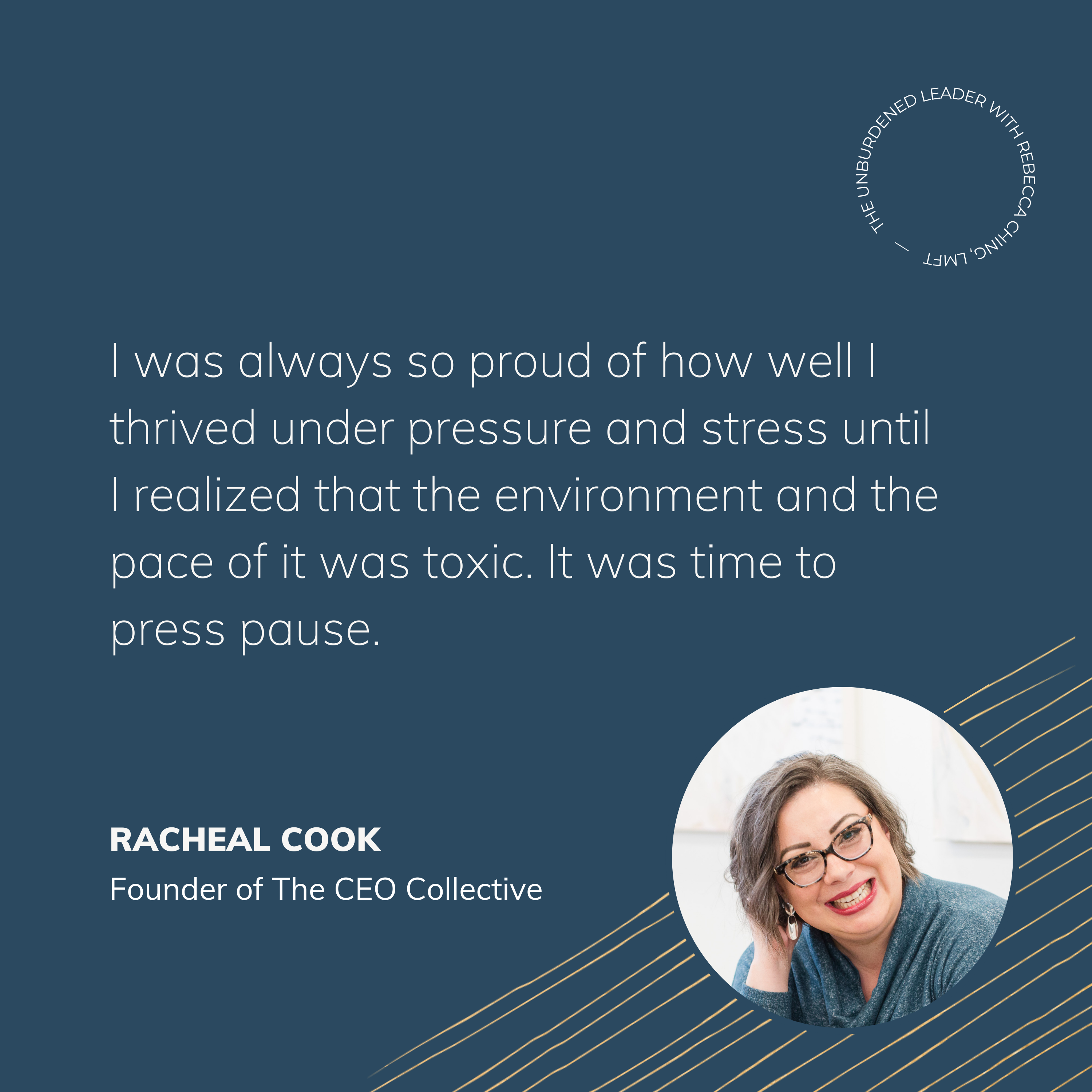Our bodies are often the wisest parts of who we are, but we regularly over-ride the messages they send us when they tell us when we’re at capacity.
We push through, over-work, see physical and emotional pain as something to overcome instead of important data to take into account about our needs and how we are living.
And even if we do take in these messages clearly and see the need for needed shifts and care, it feels like change is not an option or acceptable.
So we push ourselves until we crash. And this is often normalized – sometimes even celebrated – as a part of how we do work and life.
And when the body dials up the pain or the anxiety to finally get our attention, the default for many is to become at war with the messenger – seeing our bodies as the enemy instead of the culture of work and health care as the culprit.
This is only reinforced by the expectations from work and how everyone else “seems to being doing it all with ease.”
My guest today shares her story of working through healing from an unsustainable work schedule where burnout showed up, took her out, and changed her career trajectory.
Racheal Cook is an award-winning business strategist who believes entrepreneurship doesn’t have to be so complicated. Through her business, The CEO Collective, she helps women entrepreneurs to scale sustainable businesses without the hustle or burnout. When she’s not working with women entrepreneurs, you’ll find her playing board games with her 3 kids and husband in Richmond VA.
Listen to the full episode to hear:
- The formative experiences from Racheal’s childhood that inform how she runs her business today
- How Racheal carves out time and capacity to cultivate strong relationships
- The support systems and processes Racheal has in place so she can navigate caring for her aging parents and her family without burning out
- How acknowledging and honoring the constraints on her time and her capacity helped Racheal build a sustainable business
Learn more about Racheal Cook:
- The CEO Collective
- Instagram: @racheal.cook
Learn more about Rebecca:
Resources:
- Adverse Childhood Experiences (ACEs) – Violence Prevention
- RYSE Center ACEs Disorder vs. Distress Pyramid
- Find Your Unicorn Space: Reclaim Your Creative Life in a Too-Busy World, Eve Rodsky
- Fair Play: A Game-Changing Solution for When You Have Too Much to Do (and More Life to Live), Eve Rodsky
- Florence and the Machine
- Atlas of the Heart
- Dirty Dancing







Comments +